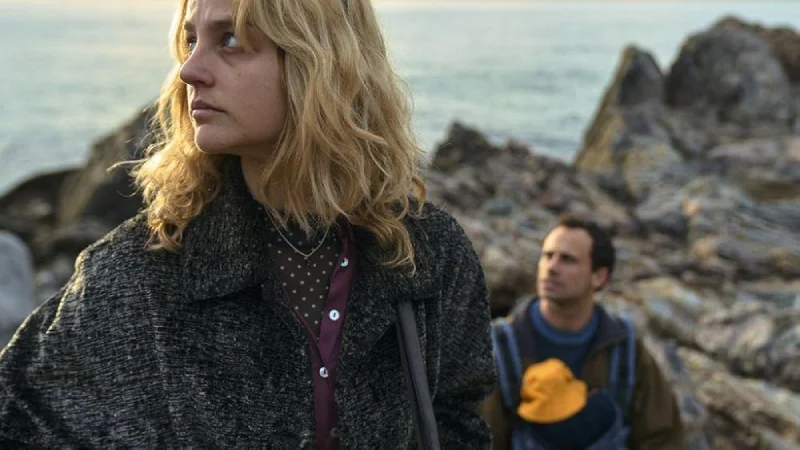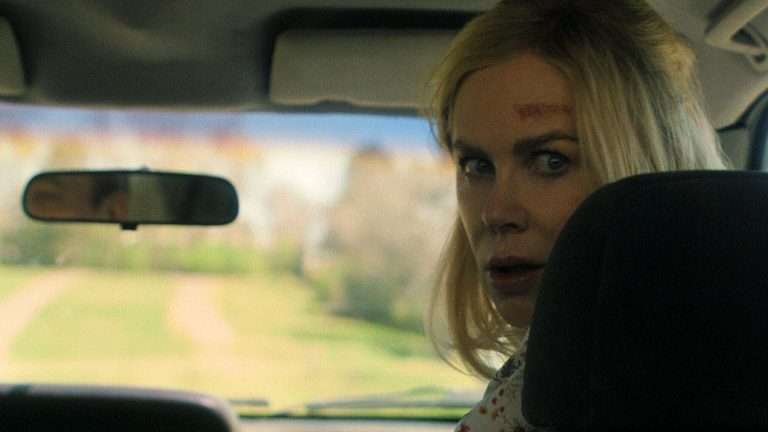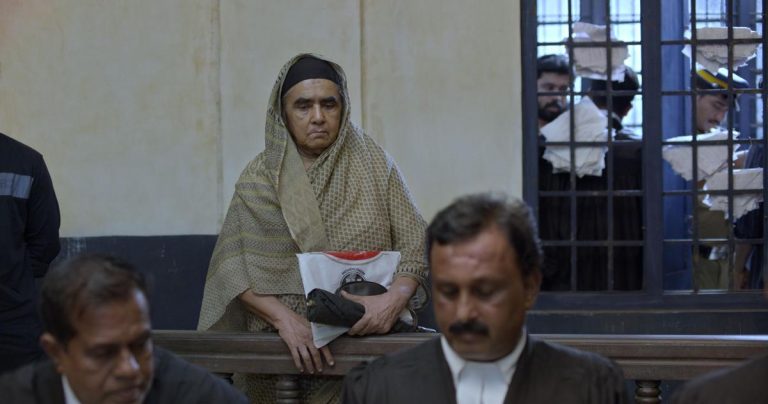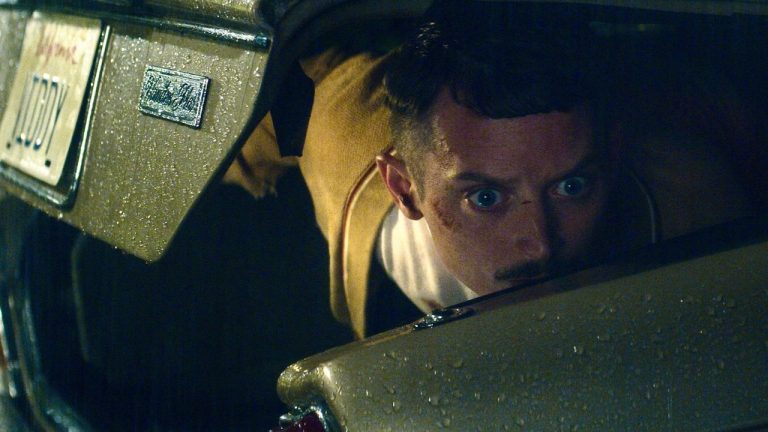Early in Mar Coll’s terrifically unnerving “Salve Maria,” the protagonist, Maria ( Laura Weissmahr), is reminded that there will be lots of things she, as a young mother, will struggle with and may not understand. An unspoken subset is that she must not see those as blind spots in her own parenting. But it does cling to her. Motherhood is all-consuming and can potentially shut out one from a healthy, functional life. Maria, who is an author, is left with scavenging for scraps of time wherein she can sneak in a few pages of writing. The child’s cries from the unceasing background noise push itself to warrant instant attention at every moment. Caught up in the busy swirl of straining motherhood, Maria has drifted away from her friends as well.
An adaptation of Katixa Agirre’s Mothers Don’t, Coll is especially interested in postpartum pangs that threaten to gnaw away at every inch of one’s body and may even tip one over mentally. Through Weissmahr’s harrowingly intense performance, trembling with its gaunt physicality, we are ushered to the supposedly nether regions of a mother’s darkest thoughts and fears. In this astonishingly audacious film, Coll gives utterance to all those purportedly ghastly, unspeakable emotions that take root in every mother’s tucked-away edge of consciousness.
Films rarely are these vocal and daring in unambiguously articulating such uncomfortable suggestions. Maggie Gyllenhaal’s “The Lost Daughter” comes to mind. But this film strides further into the center of the minefield. Some of the stuff Maria is experiencing or is rather wholly swept by makes for tough viewing. Coll’s gaze never underplays the unyielding, overwhelming physical and emotional demands having a kid can exert on the mother. Fine details are registered with immediate and scalding impact.
Every sleepless night Maria spends next to her baby is punctuated by her checking whether he is breathing and all right. Constant error that there may be a ‘defect’ with her child haunts her waking reality. She is perpetually worried and anguished over the health of her child in spite of the doctor’s reassurances. Why does he keep vomiting while she is breastfeeding? Surely something is awry?
It’s critical to note the husband, Nico ( Oriol Pla), is not the stock type and is presented as someone who’d rather wash his hands off parenting, even though he does keep deferring his paternity leave. Of course, his recourse is his stressing how much the work he is doing is significant because of the money it’ll endow them and enable them to move to a new, roomier apartment.

Despite his best intentions and sincerity in his demeanor, a certain chauvinism in him is unmistakable, like the numerous casual times Nico presses on her about the many expectations the mother is supposed to carry by default. It’s one of those inadvertent things people just foist on mothers by dint of received knowledge. Nico urges her to start and try conversing with the baby, as he had read and heard it’s effective if the mother does it.
Why is it that mothers have to bear it as if it’s their natural, predestined, inescapable burden? The sheer weight of these rapidly escalating expectations is writ large and distinct on Maria’s face. Her eyes are sunken. One doesn’t even have to take a long look at her to realize she is visibly falling apart at the seams.
Meanwhile, Maria stumbles across a recent news item about a mother, Alice, who drowned her ten-month-old twins in a bathtub. The narrative of Alice starts slowly hijacking all spaces of Maria’s imagination. It becomes a complete invasion, which Maria then redirects to her writing. Boundaries between obsession and subterranean, strong self-identification dangerously dissolve. Maria gets inextricably invested in Alice.
Newsreaders and neighbors of Alice wonder how she was capable of such a heinous act. Their refrain sticks to that “she seemed like a normal mother.” As we witness in close quarters Maria crumble, hardly does the infanticide strike as something grotesquely unbelievable. Another character in the film, nervously laughing, asks Maria if she, too, doesn’t wonder why dumpsters aren’t full of babies. Maria has dreadful dreams of shoving her child off the bed.
A running thread throughout the film, divided into chapters with intertitles by philosophers, writers, and even mythic characters, is a single pointed question: “What is the line between lucidity and darkness?’ Coll’s film, co-written with Valentino Viso, also peppers in abstractions as it heads into hair-raising psychological thriller terrain. Zeltia Montes’ score accentuates the rising tide of anxiety and apprehension, though occasionally, it does get a tad too overbearing, even if one grasps why it is so pervasively intrusive. “Salve Maria” is an unshakably powerful, unrelenting work anchored by a formidable, wholly immersed lead performance.







